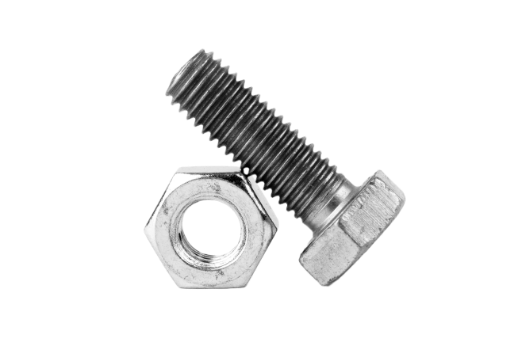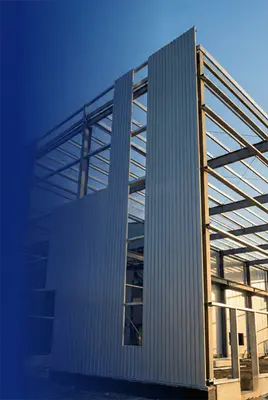
Drywall installations are integral to both residential and commercial construction projects, and demand precision and expertise to ensure durability and aesthetic appeal. This guide delves into the essential aspects of drywall screw types, optimal spacing, and patterns, in order to provide professionals and DIY enthusiasts alike with the knowledge to achieve professional-grade results. Utilizing Fastener Systems screws guarantees top-quality outcomes with every project.
The Fundamentals of Drywall: From Composition to Installation
Drywall, commonly composed of a gypsum core sandwiched between two sheets of paper, is widely used for constructing walls and ceilings. This lightweight yet robust material requires specific fastening techniques to maintain its structural integrity and finish quality. Proper screws and their correct installation are crucial as they bear the weight of the material and secure it firmly to the framing.
How Drywall Screws are Made
Overview of Drywall Screw Production
Drywall screws are crafted using a precise manufacturing process that ensures their effectiveness in securing drywall. Starting with high-quality carbon steel or stainless steel, drywall screws are shaped and threaded in a series of steps that enhance their durability and functionality.
Key Steps in Production
- Material Selection: Carbon steel is primarily used for its strength and durability, with stainless steel options available for moisture-prone environments to prevent rust.
- Forming the Screw: The steel wire is first drawn to the appropriate thickness, then cut and shaped into screws. The heads are formed to include drive recesses for better torque transfer during installation.
- Threading: Threads are formed through a high-pressure rolling process that ensures sharp, durable threads for easy penetration and strong hold.
- Heat Treatment: Screws undergo heat treatment to improve their hardness and resistance to physical stress.
- Coating: A protective coating is applied to further enhance corrosion resistance and ease of installation.
- Quality Assurance: Each batch of screws is rigorously tested to meet strict quality standards to ensure reliability and performance in construction projects.
This meticulous approach to the manufacture of drywall screws guarantees that each screw not only meets, but exceeds the typical standards expected in construction to ensure a secure, long-lasting hold in a variety of applications.
Types of Drywall Screws
Selecting the appropriate drywall screws is crucial for both the integrity of the drywall installation and the ease of subsequent finishing work. The type of screw needed will vary depending on the thickness and type of the drywall as well as the specific application (walls, ceilings, or high-moisture areas). Fastener Systems screws are crafted with these variations in mind, and offer a range of options to suit different drywall dimensions and ensure a flawless finish.
For 1/4" and 3/8" Thin Drywall
These thinner panels, often used for patching or detailed work, require shorter screws to avoid piercing through the entire panel.. A 1-inch screw is typically adequate to secure these thin panels without risking damage to the drywall's integrity.
For 1/2" Standard Drywall
This is the most commonly used thickness for residential walls and ceilings. The optimal screw length for 1/2" drywall is 1-1/4 inches. This length ensures that the screw can adequately penetrate the drywall and into the stud or joist behind it by at least 3/4 inches, which is essential for a secure hold.
For 5/8" Fire-Rated Drywall
Often used in ceilings or walls where additional fire resistance is necessary, 5/8" panels require slightly longer screws. A 1-5/8 inch screw is ideal for these types of installations, and provides enough length to secure the drywall to the framing with sufficient depth without compromising the fire-resistant material.
When installing drywall in a home or commercial property, it's crucial to know the drywall dimensions and choose the right screws for a successful project.
Optimal Screw Spacing for Drywall Installation
Wall Installation Spacing
For walls, it is recommended that screws are placed about 8 inches apart along the edges of drywall panels and every 16 inches within the field. This pattern helps distribute the panel's weight evenly across the frame, to minimize the risk of sagging or warping over time.
Ceiling Installation Spacing
Ceilings require closer screw spacing due to the additional gravitational forces at play. Edges should have screws about 7-8 inches apart, while the field should not exceed 12 inches between screws to prevent the drywall from sagging.
Screw Patterns for Effective Drywall Installation
The typical screw pattern involves placing screws in straight lines across the drywall panel and ensuring they align with the underlying studs or joists. Advanced techniques include staggering the screws on adjacent panels to distribute loads more evenly and avoid aligning seams directly over one another, which can compromise the drywall’s structural integrity.
Practical Tips and Common Mistakes in Screw Placement
Achieving a flawless finish involves more than just following spacing guidelines:
- Ensuring that each screw is driven to the correct depth—just below the surface of the paper—without breaking through ensures that the drywall can be finished smoothly without additional repairs.
- Common mistakes include overdriving screws, which can tear the paper and reduce the hold, or spacing them too far apart, which can lead to weak spots.
Compliance and Safety Considerations
Adhering to local building codes is not just about compliance—it's about ensuring safety and stability in building constructions. These regulations typically specify minimum requirements for screw type, size, and spacing, and are tailored to local environmental and structural demands.
Choose Fastener Systems Drywall Screws for Unmatched Quality and Durability
Ensure the integrity and longevity of your construction projects with Fastener Systems, Inc. (FSI) drywall screws. Our screws are engineered for superior penetration and grip, which makes them the ideal choice for both professional builders and DIY enthusiasts. With a focus on quality and durability, we provide reliable solutions that stand the test of time.
Contact us today for more information!

